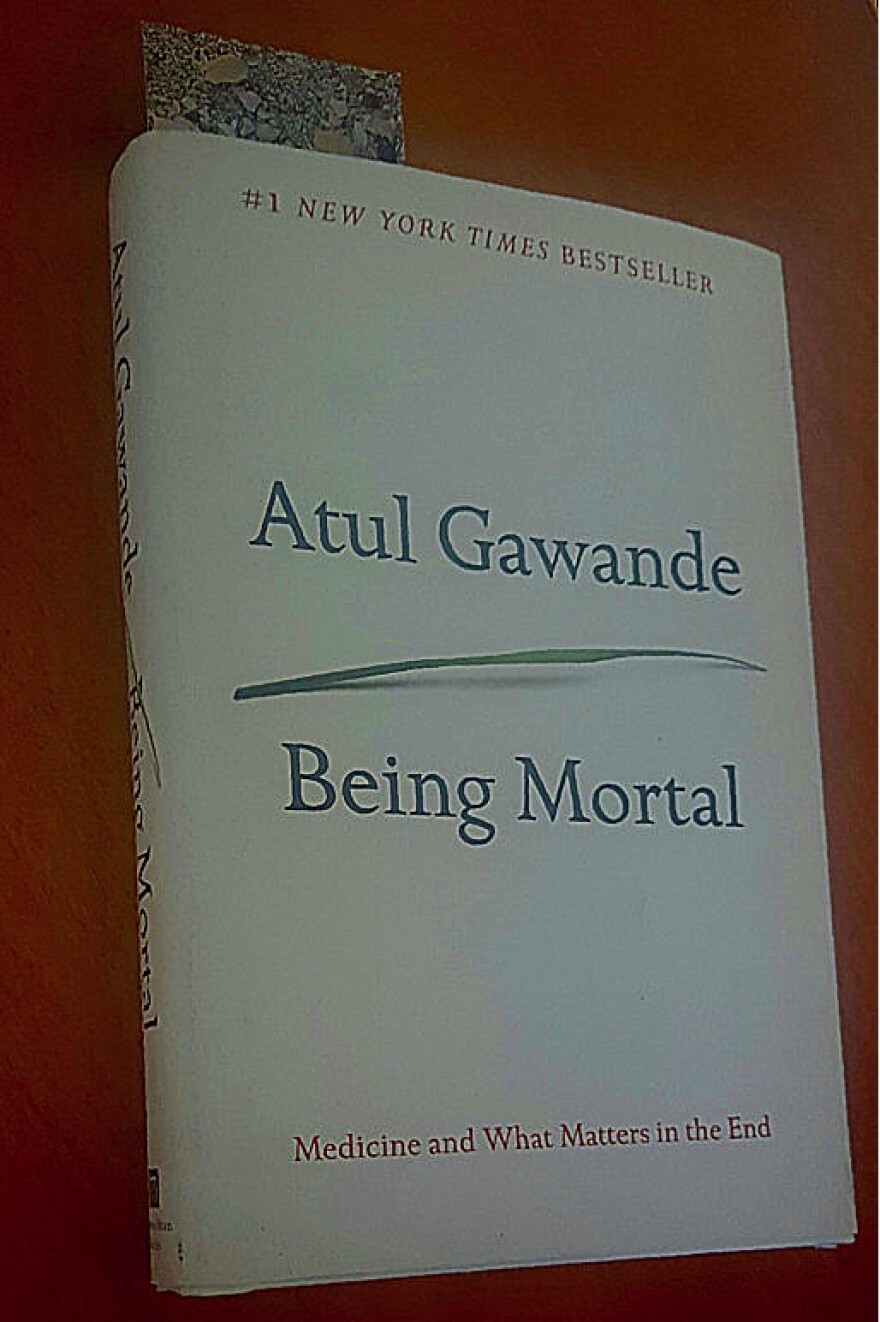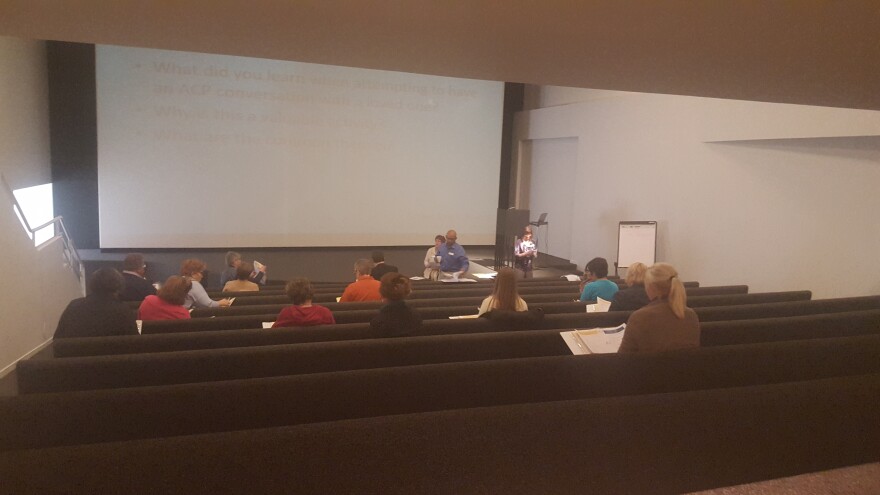A sudden event such as a car accident or illness, say a stroke, has left you unable to communicate. You are receiving all the care needed to keep you alive, but the doctors believe there is little chance you will ever recover the ability to know who you are or who you are with. In your own words, tell me what this situation means to you.
Join our coverage over the New Harmony Conversations and what one local community is doing to open up the conversation of death.
Advance directives are not a new thing. However, only about 30 percent of those that live in the United States have one of these documents. One community has already made an effort to change its numbers, and today 96 percent of those who die in La Crosse, Wisconsin have an advance directive. Through efforts from the hospitals and the Catholic Diocese, the conversation of death has found a place in common conversation, a contrast to what is seen on a national scale.

A local example of this is seen in New Harmony, Indiana, a small town of just under 1,000 residents that has taken its own initiative to make end-of-life conversations a common thing. However, those making the effort in New Harmony are community members, not the local hospitals or the churches -- just local residents wanting to open the dialog about death and dying. Rather than having the conversation later in life, this project works to have conversations early, before any medical emergency might occur. Their goal is to have over 200 advance care planning conversations by August of 2016. To kick off the conversations, the founding group members came up with a unique way to initiate the discussion, since talking about death has been nonexistent for many.
Copies of Being Mortal by Atul Gawande were distributed to residents and used in book club conversations. In the book, Gawande uses his own personal and professional medical experiences to examine how medicine has helped extend life expectancy but has often, in return, failed when it comes to the inescapable realities of aging and death. One quote from the book, "For human beings, life is meaningful because it is a story, and in stories, endings matter," was chosen to be used in coordination with the initiative.
Sitting in on one of the book club conversations, it was clear that the book had struck a chord with some in the community. Those in attendance at the Charles Ford Retirement Community that Thursday afternoon, expressed their thoughts on how society has changed when it comes to treatment of the elderly. When

asked about why the medical field doesn't train for helping patients cope with grief, one stated, "What worries me about that question is the question that immediately arises: 'If it's not a medical problem what kind of problem, is it?' Who else could pat you on the back about that? I don't know." Many others in the circle nodded in agreement noting the lack of connection that has formed between doctors and patients, medicine and personal connection.
To continue getting the word out, Dr. Kevin Valadares, Associate Professor and Chair of Health Administration at the University of Southern Indiana and also one of the founding members of New Harmony Conversations, spoke in a lecture series this spring at the Working Men's Institute. In his presentation, he explained the importance of advance directives and what having a conversation with a facilitator would provide them even if they already have a directive. "The reality is this: Even if individuals have an advance directive, have a documented guide for their care, it is not related as much, or it doesn't tend to be related to the scope of these conversations," Valadares says "Sometimes, it's much more boxes that they check on a piece of paper, and so these conversations really are much more in depth level, which leads to a more comprehensive directive."
Facilitator training sessions continue to be held so that more people can have conversations and make the discussion about death a common topic on the streets of New Harmony. To be a facilitator for the New Harmony Conversations, you don't need a medical degree, which members take pride in. Connie

Weinzapfel, a New Harmony resident and facilitator, finds this to be an advantage. "I think it's different if you have a conversation with someone who has been in health care as someone like me who isn't. I mean, it's a totally different dynamic. I don't have preconceptions about what's going to happen. I sit here today not knowing, other than amputating your foot, I don't know anything about diabetes." That's the difference between the community approach New Harmony is taking and the approach created in La Crosse and adopted by other communities.
For more information you can contact New Harmony Conversations at nhconversations@hotmail.com.




